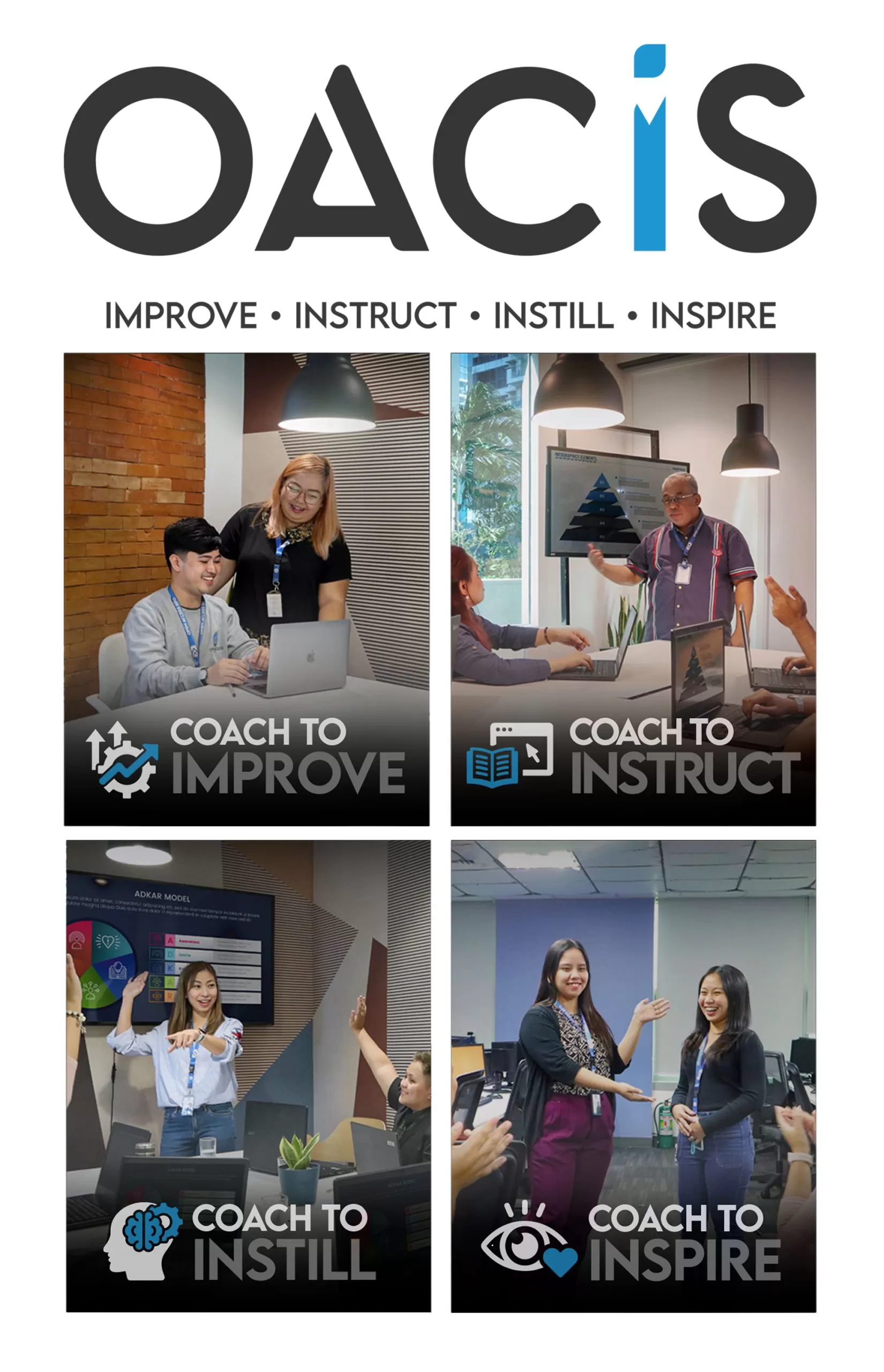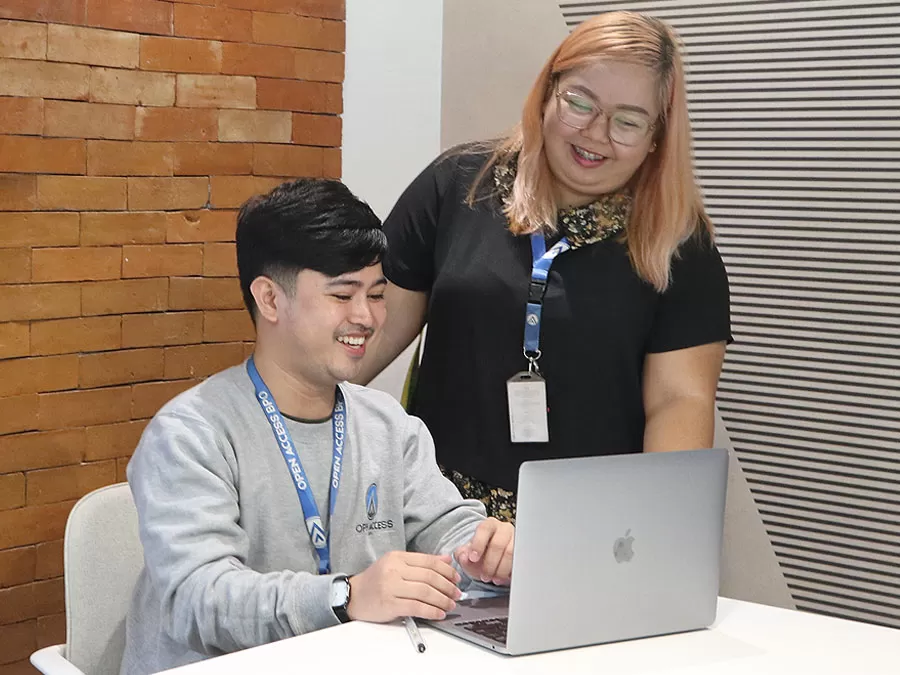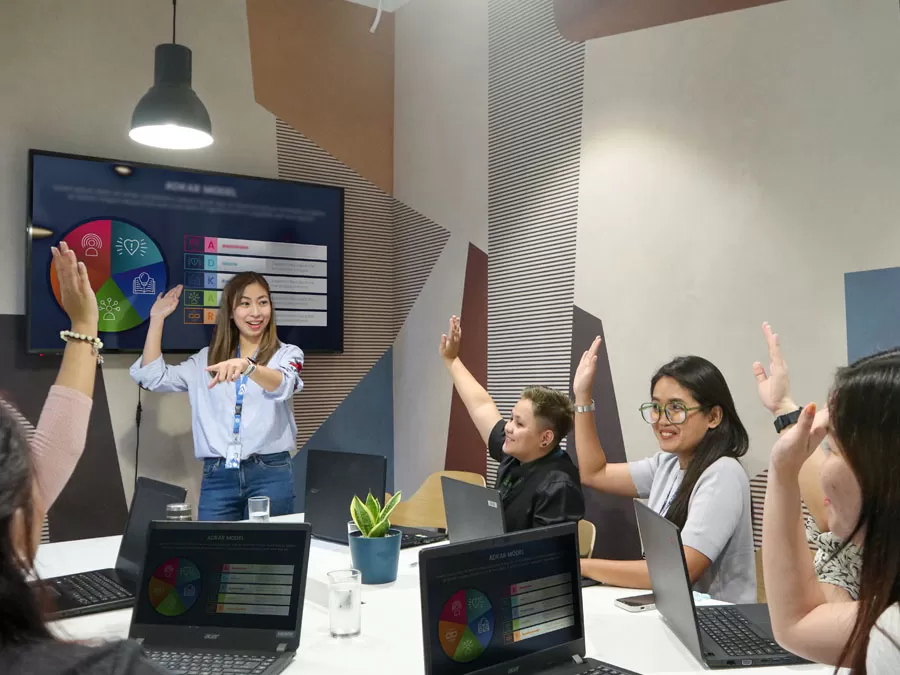As a testament to its dedication to employee development, multinational customer support call center, Open Access BPO, is raising the bar for people growth with the launch of OACIS.
Designed to inspire, support, and guide employees towards their goals, the new coaching platform aims to transform how the company nurtures talent.
“OACIS is a significant step forward in our ongoing commitment to creating a more supportive and engaging workplace,” says Open Access BPO VP Joy Sebastian. “By providing personalized guidance and performance tracking, OACIS empowers our team leaders to develop their agents and drive continuous improvement.”
Launched on October 11 during Customer Service Week, OACIS—Open Access Coach to “I” s—is built on the foundation of four coaching core principles and goals: Coach to Improve, Instruct, Instill, and Inspire. This innovative coaching platform provides employees the support and guidance needed to excel in their roles.
Head of Operations Support Rommuel Lingan explains, “OACIS represents extensive collaboration between the Quality, Training Design, and Programming teams,” adding that its ultimate goal is to standardize coaching processes.
Under the OACIS platform, Team Leaders receive a structured guide to identify improvement opportunities and set personalized goals for agents requiring coaching. Another crucial part of OACIS is training leaders on root cause analysis (RCA).
Training Design Specialist Mary Joanne Sevilla says RCA and action planning will help elevate employee coaching in the call center, thus improving agent performance.
“We hope users will apply these lessons to enhance their RCA process and create more effective action plans,” Sevilla says.
Also included in OACIS’ array of features are the dashboard and scorecard showing each agent’s progress after each coaching session.
From Concept to Launch
According to Lingan, the idea for OACIS came from the need for “Open Access BPO-branded coaching in terms of form and substance, process, and method.”
He introduced his vision to the Training Design team, and the project was developed with guidance from Vice President Joy Sebastian.

Sevilla explains that OACIS builds on the foundation of Qare Central, a platform previously used by the Quality Assurance team for real-time performance evaluations. By enabling users to track areas for improvement, Qare Central served as a valuable reference in developing coaching action plans.
Expanding on Qare Central’s functionalities, she notes that OACIS goes beyond quality assurance to encompass broader performance metrics, including program-specific KPIs, code of conduct, and Performance Improvement Plans. This evolution makes OACIS a comprehensive tool for enhancing agent performance.
OACIS promotes consistency among team leaders by establishing a timetable for each coaching session and outlining clear steps: identifying areas to improve, instruct, instill, or inspire; conducting RCA; and developing and implementing an action plan.
Lingan explains that these structured steps allow leaders to adapt their coaching approach to each program’s unique goals and challenges, enabling tailored strategies while ensuring
consistency.
“We’re excited about the potential of OACIS to revolutionize our coaching approach,” adds Sebastian. “It aligns perfectly with our strategy of fostering a high-performance culture.”
“OACIS demonstrates our dedication to innovation and adaptability. It emphasizes our focus on consistently delivering exceptional service to our partners as we nurture our team’s personal and professional growth and strengthen the relationships between team leaders and their agents.”
During OACIS’ official launch, University of the Philippines Assistant Professor Edward Kho imparted his knowledge on effectively coaching a team towards their goals. In his speech,
“Coaching for a Winning Culture,” Kho explored how a sports coach’s approach can be adapted to create a high-performing work environment.
As for his expectations now that OACIS is online, Lingan says he looks forward to seeing Open Access BPO establish a coaching culture. “The goal is to manage agent-level performance toward overall operational excellence, as well as client and employee satisfaction,” he explains.


